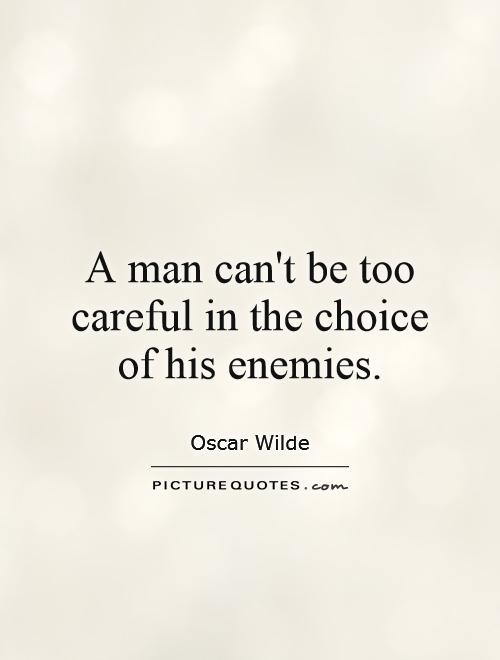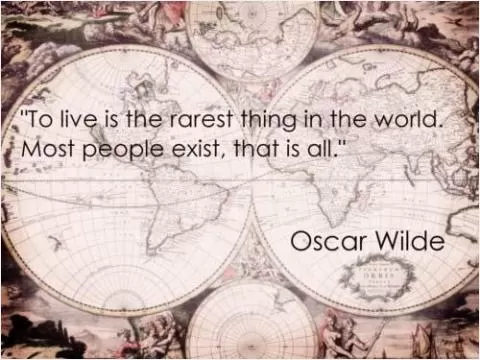A man can't be too careful in the choice of his enemies

A man can't be too careful in the choice of his enemies
Oscar Wilde, the renowned Irish playwright, poet, and author, was a master of wit and satire. His works often explored themes of social class, morality, and the nature of art. One of Wilde's most famous quotes is, "A man can't be too careful in the choice of his enemies." This statement reflects Wilde's keen understanding of human nature and the complexities of interpersonal relationships.In Wilde's world, enemies were not simply individuals who disagreed with or opposed him. They were often rivals who sought to undermine his reputation, sabotage his career, or even destroy his personal life. Wilde knew that choosing the wrong enemies could have disastrous consequences, both professionally and personally. He understood that one's enemies could be just as dangerous, if not more so, than one's friends.
Wilde's own life serves as a cautionary tale of the dangers of choosing enemies unwisely. In 1895, Wilde was publicly accused of homosexuality by the Marquess of Queensberry, the father of his lover, Lord Alfred Douglas. Wilde, in a moment of hubris, decided to sue Queensberry for libel. However, the trial quickly turned against him, and Wilde was ultimately convicted of gross indecency and sentenced to two years of hard labor.
Wilde's downfall was not just the result of his own actions, but also of the enemies he had made along the way. Queensberry, a powerful and influential figure, used his connections to bring about Wilde's downfall. Wilde's enemies in the press and in society also played a role in his downfall, spreading rumors and innuendo that further damaged his reputation.












 Friendship Quotes
Friendship Quotes Love Quotes
Love Quotes Life Quotes
Life Quotes Funny Quotes
Funny Quotes Motivational Quotes
Motivational Quotes Inspirational Quotes
Inspirational Quotes